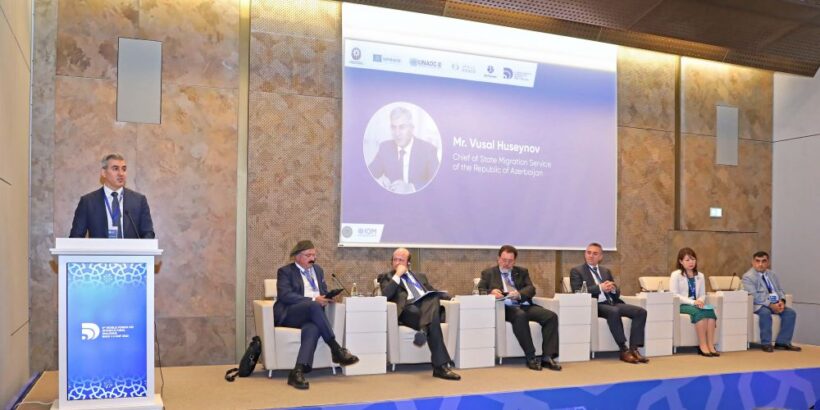The issue of unregulated migration was discussed within the framework of the Intercultural Dialogue Forum, held on May 1. The sixth annual World Intercultural Dialogue Forum, themed “Dialogue for Peace and Global Security,” commenced at the Baku Congress Center.
President Ilham Aliyev of the Republic of Azerbaijan graced the opening ceremony. The forum is organized by the Azerbaijani government in partnership with UNESCO, the UN Alliance of Civilizations, the World Tourism Organization, and ICESCO. It boasts the participation of over 700 esteemed delegates from more than 100 countries.
A key focus of the forum was migration. A panel session titled “Improving Existing and Flexible Regular Migration Routes to Solve Irregular Migration: Creating Conditions for Sustainable Development” was convened. This session was co-supported by the State Migration Service and the International Organization for Migration.
Distinguished panelists included Kanako Mabuchi, Head of the UN Resident Liaison Office in Azerbaijan; Pier M. Rossi-Longhi, Senior Specialist in Regional Immigration and Border Management at the International Organization for Migration; Pablo Herrera Fontanals, Head of Agora Diplomatica; Peter Gorgiyevsky, Chairman and CEO of the Global Dialogue Foundation; Peter Mousaferiadis, CEO and founder of Cultural Infusion and Diversity Atlas; and Ramil Iskanderli, Chairman of the Public Council under the State Migration Service.
Vusal Huseynov, head of the State Migration Service, delivered the opening remarks, highlighting the forum’s role in advancing intercultural dialogue and addressing migration—one of the main topics. He discussed the detrimental impacts of unregulated migration on global peace, economy, and social harmony, emphasizing the need for strategic solutions that ensure migrant rights, social security, and effective integration.
Further, Mr. Huseynov underscored the significance of intergovernmental and intercultural dialogues in establishing legal migration frameworks. He shared insights into Azerbaijan’s efforts to mitigate irregular migration, ensure legal migration processes, and conduct regular awareness campaigns. He also noted that Azerbaijan has implemented a proactive migration policy aligned with national development priorities, optimizing the developmental potential of migration and introducing incentives to foster a conducive business and investment environment, particularly in the recently liberated regions of Karabakh and East Zangezur.
The session facilitated comprehensive discussions on mitigating irregular migration, addressing forced resettlement, aiding individuals impacted by war and conflicts, and exploring measures for the social security and integration of migrants. The forum, scheduled to run over three days, will feature various panel discussions addressing these critical global issues.





